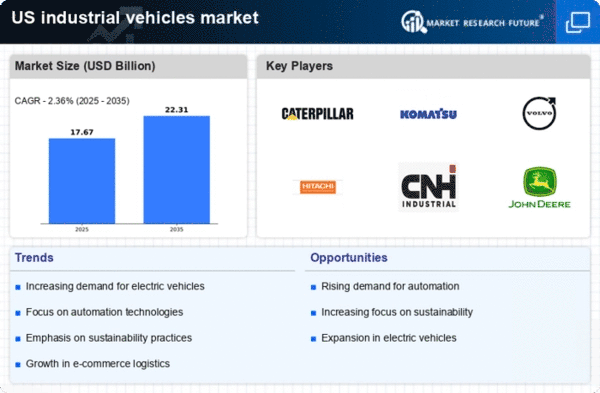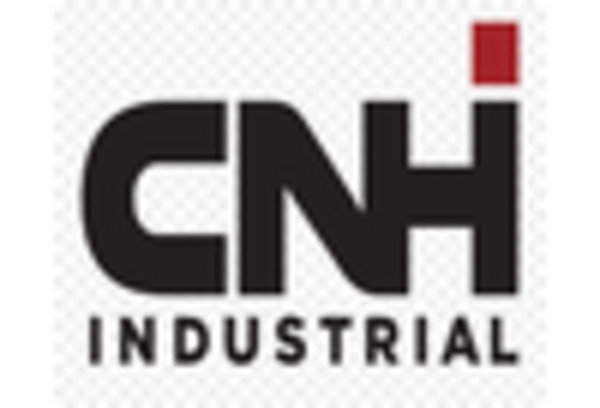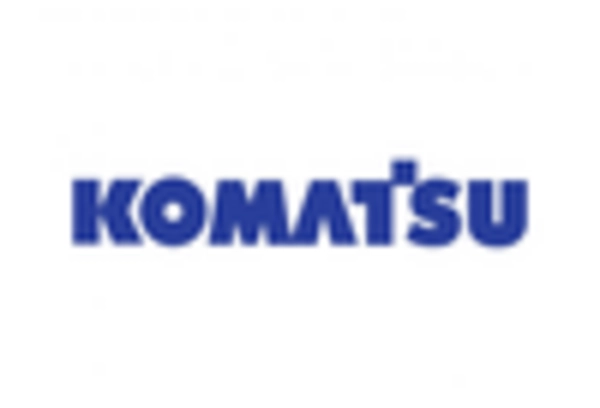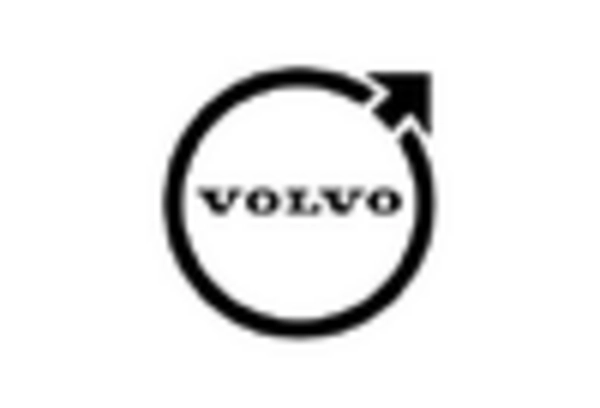Growing Emphasis on Sustainability Practices
The industrial vehicles market is witnessing a growing emphasis on sustainability practices among businesses. Companies are increasingly adopting environmentally friendly practices, which include the use of electric and hybrid industrial vehicles. This shift is driven by regulatory pressures and consumer demand for greener solutions. As a result, the market for electric industrial vehicles is projected to expand significantly, with estimates suggesting a growth rate of around 15% annually over the next few years. This trend not only aligns with corporate social responsibility goals but also offers potential cost savings through reduced fuel consumption and lower emissions, thereby influencing purchasing decisions in the industrial vehicles market.
Technological Advancements in Vehicle Design
Technological advancements in vehicle design are reshaping the industrial vehicles market. Innovations such as improved fuel efficiency, enhanced safety features, and the integration of telematics are becoming standard in new vehicle models. These advancements not only improve operational efficiency but also reduce the total cost of ownership for businesses. For instance, vehicles equipped with telematics can provide real-time data on performance and maintenance needs, which can lead to significant cost savings. The industrial vehicles market is likely to benefit from these technological improvements, as companies increasingly seek vehicles that offer both performance and reliability.
Rising Demand for Efficient Logistics Solutions
The industrial vehicles market is experiencing a notable surge in demand for efficient logistics solutions. This trend is driven by the increasing need for streamlined supply chain operations across various sectors, including manufacturing and retail. As companies strive to enhance productivity, the adoption of advanced industrial vehicles, such as forklifts and automated guided vehicles, is becoming more prevalent. According to recent data, the logistics sector is projected to grow at a CAGR of approximately 6.5% through 2027, which directly influences the industrial vehicles market. The emphasis on reducing operational costs and improving delivery times is likely to propel investments in innovative vehicle technologies, thereby shaping the future landscape of the industrial vehicles market.
Increased Focus on Workforce Safety and Training
An increased focus on workforce safety and training is becoming a critical driver in the industrial vehicles market. As companies prioritize the well-being of their employees, investments in safety training programs and advanced safety features in vehicles are on the rise. This trend is reflected in the growing adoption of vehicles equipped with safety technologies, such as collision avoidance systems and ergonomic designs. According to industry reports, organizations that invest in safety training can reduce workplace accidents by up to 30%, which underscores the importance of safety in operational efficiency. Consequently, the industrial vehicles market is likely to see a shift towards vehicles that not only meet operational needs but also enhance safety for operators.
Government Initiatives for Infrastructure Development
Government initiatives aimed at infrastructure development are significantly impacting the industrial vehicles market. With substantial investments in transportation and logistics infrastructure, the demand for industrial vehicles is expected to rise. The U.S. government has allocated billions of dollars for infrastructure projects, which include the modernization of ports, highways, and rail systems. This investment is anticipated to create a favorable environment for the industrial vehicles market, as enhanced infrastructure facilitates smoother operations for logistics and transportation companies. Furthermore, the push for sustainable infrastructure may lead to increased adoption of eco-friendly industrial vehicles, aligning with broader environmental goals and regulations.
















